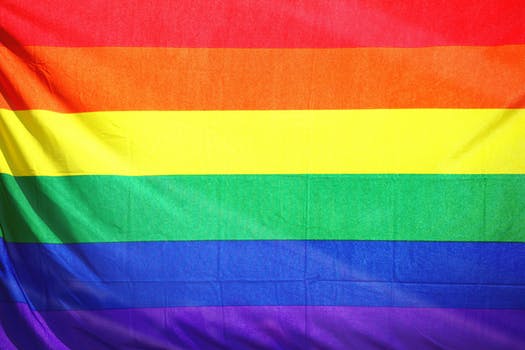
At the risk of being called exclusive and antediluvian, I’ve decided to not use the term “gay.” This is not because I hate those who use this term to refer to themselves, but because I love them. Let me explain.
There are two reasons to avoid the term “gay.” The first is that it’s linguistically misleading. A word has been chosen which already has one clear meaning, and it has been co-opted to mean something entirely different. To go from meaning happy or carefree to mean having sex with a person of the same gender is something of a stretch. This linguistic license, however, is not my real concern. My real problem with the term “gay” is that it is harmful. Harmful to any discussion of sexual values, and ultimately harmful to people on both sides of that discussion.
The reason it’s harmful is that “gay” implies that people are born with an “orientation,” an immutable predilection for having sex with people of the same gender. The possibility of a person having a psychological orientation toward either homosexual or heterosexual behavior may well have had its start with Freud, who believed that early life experiences could push a person in either direction. Because of this belief, he also saw little in the way of one being better than the other. This understanding represented a significant departure from earlier views, based most notably on the Bible, which described homosexual activity as a volitional act with spiritual causes and moral consequences. Though hardly monolithic in its views on homosexual behavior, the psychoanalytic profession has largely adopted Freud’s assessment that such activity is not aberrant in and of itself and has, through a rather tortuous process, removed homosexuality as a pathological diagnosis. In doing so, however, it has given official sanction to the “orientation” perspective, that sexual identity comes from within and is largely beyond our control. This in turn has made any discussion of the rectitude of homosexual contact moot. This is unfair to everybody, especially those who consider themselves “gay.”
The orientation paradigm has four signal dangers, any one of which should make us change our language.
First of all, it implies that a person is “made this way,” and cannot and should not change. Indeed, many young people who are coming of age physically are so imbued with the orientation paradigm that they feel they must experiment by having sex with both genders to decide what they “are.” Once they decide which is more fulfilling, they figure this is their lot in life, something over which they have no volitional control. If a person becomes dissatisfied with the “life style,” rethinking their “orientation” is tantamount to treason to the cause of their struggle for freedom of sexual expression.
The second danger is that a person who believes in orientation and concludes they are “gay” is left with the inescapable conclusion that they really are abnormal. They are consigned to an existence where their predilections do not match the realities of their bodies; and, of course, they cannot reproduce. Their sexual activity becomes profoundly narcissistic, focused on the immediate sensation and not the long-term relational and biological possibilities intrinsic to opposite gender sex.
The third danger is that the person who believes in immutable orientation and concludes that they are “gay” is somehow entitled to pity or special treatment because they are a member of an aggrieved minority. The “straight” world champions opposite gender encounter, and yet here is the beleaguered person who, with no complicity on their part, is overlooked or, even worse, discriminated against. Self-pity is always a harsh taskmaster.
The fourth and most profound danger presented by the whole orientation viewpoint, however, is philosophical and spiritual in nature. Rational behavior demands that we learn the facts, think, come to a logical conclusion, and then act. The orientation theory of sexual determinism, however, allows, and even enjoins, the opposite approach. The “gay” person is told, you must start with your sexual proclivities and then make decisions about what you believe about yourself and your world based upon that. The Bible, for example, inveighs against homosexual behavior, so it and those who read it must be rejected. Parents or other loved ones who are less than thrilled with your orientation must be rejected or at least held at arm’s distance. Friends who are “straight” and who have nuclear families are of a different sort and cannot fully understand the “gay” world you inhabit. Sexual attraction thereby becomes the center of one’s very existence, with all other considerations becoming secondary.
How we believe ultimately determines what we believe. If there is a defect in how we think, there will be a defect in what we think. The Biblical witness from beginning to end is that man’s most profound challenge is to be rightly related to his creator. As Oswald Chambers says, “Sin is a fundamental relationship; it is not wrongdoing, it is wrong being, deliberate and emphatic independence of God.” Thus, anything that we cling to as a right or possession without regard to the primacy of God, has in and of itself the nature of sin. Is it not possible that the Biblical condemnation of homosexual behavior lies not in its biological absurdity, but in the retrograde reasoning it demands? Rather than think, then act, the orientation paradigm demands that we act, then think.
The Bible portrays man as he is born as being a two-part person; a soul, consisting of his mind, will and emotions, and a body. The spirit, which man possessed before the Fall, is attenuated or missing altogether. The result is that the body, which speaks loudly, gains control over the soul, and we end up driven by our physical passions into nonsensical situations. The solution offered by that same Bible doesn’t involve improving man so much as replacing him. When a man senses the need for remedy, he can ask, and the Spirit of the living Lord will come into his heart and restore the spiritual presence that was lost in the Fall. The idea is that the Spirit will inform the soul, and the soul will regain control over the body. Thus, rational existence is restored to the individual who, in the words of AA, has found his life to be unmanageable because of his irrational appetites, and asks God to restore him to sanity.
The orientation paradigm is not only harmful to those who consider themselves “gay,” but also those who consider themselves “straight.” Christians who accept the philosophy will fall into one of two traps themselves. On the one hand they will say that the “gay” person is a sinner and must reform before they can regain God’s favor. They are not welcome in the fellowship of believers until they repent and reform their behavior. This is wrong in that it suggests that we are saved because we’re good, not good because we’re saved, which is closer to the truth. This sanctimonious attitude cuts any sinner off from the only avenue of grace they will find that can actually make a difference, and was the attitude in religious leaders that Jesus himself condemned. On the other hand, accepting the notion of an immutable orientation can lead “straight” people, particularly Christians, to think that in unquestioned acceptance they are being inclusive and tolerant and as such are exhibiting divine qualities. To be sure, Christians are not to reject any person in moral confusion, but they are not to leave them in that confusion. Jesus came to set right that which is wrong, and we are all challenged to expose the entirety of our lives to his scrutiny, with no reservation whatsoever.
If we reject the whole orientation paradigm, new options for ministry are opened up to those with sexual challenges. The only sure solution is to examine what we consider authoritative in our lives, as revealed in our life of worship. Paul is very clear in Romans 1 that homosexual behavior is a consequence of wrong worship. The message of the Gospel must be reproduced in all faithfulness. We are not judged for our sins; our sins were atoned for on the Cross almost 2,000 years ago. We will all face another judgment, however, and that is for whether or not we bear fruit for the Kingdom of God. Forget what you’ve done wrong; have you done anything right? Have you striven to see a sinful humanity turned back to peace with its God, or did you squander your status as a forgiven child of God and pursue your own pleasures? The only way to bear fruit is to let the Spirit of Jesus live within you. He bears fruit, our job is to bear him, and he will not tolerate other gods in our lives. If we do not put him first, which is the definition of correct worship, he cannot operate; and we’ll remain fruitless. Everything must take second place to Him–even, and especially, our physical wants and desires.
None of these last insights is possible if one accepts the whole orientation understanding of sexual motivation and behavior. And you cannot use the terms “gay” or even “straight” without the orientation paradigm. To call somebody “gay,” is to consign them to the four perils mentioned above, and to call yourself “straight” is to abandon any accurate and creative role you might play in their relief. That, to me, is the definition of hate language, and I’m not going to use it.
